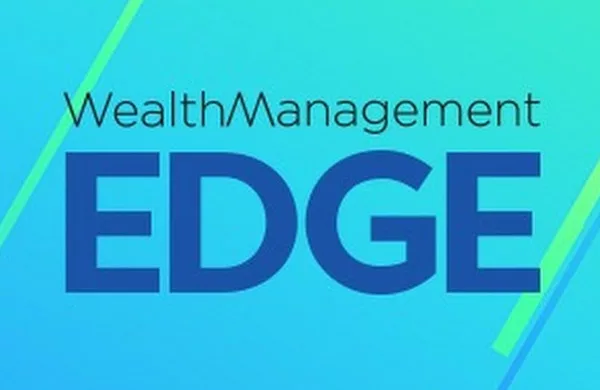Some risks you can’t see coming. Others you can try to predict – and prepare for.
It’s all well and good to dream about a happy retirement, but it’s up to you to make that dream come true. An important part of fulfilling your dream is understanding that retirement brings on a host of new challenges and risks. Here we’re going to talk about Seven Risks to Your Retirement, and what you can do to help prepare for them. We’ll cover:
Longevity…inflation…healthcare costs…spending down principal…financial reforms…relying too much on stock market growth…and unexpected life events.
First, let’s look at why longevity and inflation pose major risks to your retirement. Let’s start with a statistic: In the year 2000, an estimated 50,000 Americans lived to the age of 100 or beyond. By 2050, that number is expected to reach one million.
In a way that’s great, but it also presents some major challenges. For one, it means people today need to prepare for longer retirements than their parents and grandparents. If you retire at 65 with a plan good for 25 years of retirement income, but you live another 35 years, that’s a problem. What makes it a major risk is that many people underestimate today’s longevity rates, including many financial advisors.
Adding to the problem is another major risk that many people underestimate: inflation. It’s no secret that inflation eats away the purchasing power of your money. The Bureau of Labor and Statistics puts the average inflation rate at around three to four percent. What many people don’t realize is that the rate of inflation on the things you’ll need during retirement can easily reach six to 10 percent. In other words, inflation hits retirees much harder than the general population, and the longer you live, the harder it hits. By one estimate, if you retire today in your 60s and live another 30 years, you’ll need three to four times more income at the end of your retirement than you did at the beginning. The risk gets even higher when you factor in healthcare inflation. More on that shortly.
————————————————————————–
So far, we’ve talked about the risks of longevity and inflation. Now let’s cover two more: healthcare costs and the risk of spending down principal.
It’s a simple fact that your healthcare needs will increase as you get older. Most people realize this, but many still underestimate the risk it poses. As a result, they make a common mistake: using current healthcare prices to formulate their plan to cover future costs. They may make some adjustments for inflation, but those adjustments fall short because they don’t realize healthcare inflation rises at a much steeper rate than general inflation. I stress this point frequently because it’s that important. Even if you have good insurance, it may not cover many of the things you need or want, such as in-home healthcare. Nobody wants to end up in a nursing home. Unfortunately, the reality is fulltime in-home care that costs $200,000 dollars today may cost $600,000 dollars or more by the time you need it in your 80s or 90s. Trying to cover that out-of-pocket if you haven’t properly prepared could pose another major retirement risk: spending down your principal.
Spending any principal in retirement is a slippery slope thanks to that first major risk we talked about: longevity. To understand why, think about a 30-year retirement like a 30-year mortgage but in reverse. When you first start making mortgage payments, you’re not paying back much principal. Instead, you’re paying mostly interest and just a bit of principal. However, as the years go by, you pay less interest and more principal. The process continues until, after 30 years, your mortgage is paid off.
Now, imagine that process in reverse. Take a pool of savings worth $1 million dollars generating 5 percent interest, or $50,000 a year. If you take even a bit more than that $50,000, just a small amount of your principal, your million in savings could be depleted within 30 years in the same way that a mortgage is paid off. That’s why it’s so important to address risks like longevity and healthcare costs with a plan that follows the first piece of financial advice you likely ever got from your parents: live off your interest, and don’t touch your principal.
————————————————————————–
We’ve covered longevity, inflation, underestimating healthcare costs, and the risk of spending down principal. Now let’s talk about some risks posed by two major American icons: Uncle Sam and Wall Street.
One of the main risks of being a do-it-yourselfer when it comes to retirement planning is that financial laws are always changing. It can be challenging even for a professional to keep up with all the regulations around things like taxes, Social Security, RMDs, and estate planning. A mistake could be costly in several ways. You could end up overpaying on taxes, short-changing your Social Security benefits, or putting an asset at legal risk. Depending on the error, you could also get slapped with a big IRS penalty, up to 50 percent!
Those are all just risks that exist under normal circumstances. Add major reforms to the mix and it gets even riskier. Fully understanding financial laws is a key part of creating and managing your retirement plan. It’s all about knowing how to help maximize their benefits and try to minimize their risks, and that same principal applies when it comes to the stock market.
Counting too much on stock market growth is another common risk many retirees take. It’s risky because, based on the lessons of market history, if you have a 30-year retirement, there’s a good chance you’ll experience a long-term bear market. If your financial strategy is overly dependent on growth, odds are you’ll end up spending down principal. However, it gets worse, because in the years the market is down, you’ll be forced to liquidate a greater number of shares to keep up with your income needs. This is known as reverse dollar-cost averaging and is one of the biggest mistakes you can make. You can end up cannibalizing your entire principal, running out of money in your 80s or 90s while worrying about it for years before that. None of this means you can’t stay in the stock market after retirement, only that there are safer ways to do it at that stage of life.
————————————————————————–
So far, we’ve covered longevity, inflation, healthcare costs, spending down principal, financial reforms, and relying too much on stock market growth. Now let’s look at risk number seven: unexpected life events.
One important financial lesson reinforced by the coronavirus crisis was to expect the unexpected. While it’s impossible to anticipate every curveball life throws your way, some are more common than others. It’s essential to have a financial plan that helps prepare you for as many as possible, and for unexpected emergencies in general. Here are three examples:
First, a reduction in income from the loss of a spouse or partner. Death is a part of life, and it’s rare for couples to die together. It’s not pleasant to think about, but it’s an important thing to prepare for. You can do that by making sure your overall strategy includes a proper estate plan.
Second, the need for long-term care. It’s more common than ever with today’s longevity rates. As we noted earlier, inflation could easily cause the price of long-term care to increase greatly by the time you need it, and your insurance coverage may be limited.
Finally, financial emergencies involving elderly parents, children, or grandchildren. As you may know from personal experience, today’s retirees and near-retirees are part of a Sandwich Generation. That means they might care for elderly parents or grown children & grandchildren in some way. Those obligations are often financial, and a sudden emergency can easily increase the burden. These situations are often emotionally draining as well, so it’s important to have a financial plan that anticipates them and helps you minimize their impact.
Life is full of risks at every stage. However, as you near and enter retirement, certain risks increase, and new ones emerge. The ability to achieve your retirement goals and enjoy retirement depends on many things, and one of them is how well-prepared you are for these risks.
All written content on this site is for informational purposes only. Opinions expressed herein are solely those of Arbor Financial Services of Florida, Inc. and our editorial staff. Material presented is believed to be from reliable sources; however, we make no representations as to its accuracy or completeness. Investing involves risk. There is always the potential of losing money when you invest in securities. Asset allocation, diversification and rebalancing do not ensure a profit or help protect against loss in declining markets. All information and ideas should be discussed in detail with your individual advisor prior to implementation. The presence of this website, and the material contained within, shall in no way be construed or interpreted as a solicitation or recommendation for the purchase or sale of any security or investment strategy. In addition, the presence of this website should not be interpreted as a solicitation for Investment Advisory Services to any residents of states where otherwise legally permitted to conduct business. Fee-based financial planning and Investment Advisory Services are offered by Sound Income Strategies, LLC, an SEC Registered Investment Advisory firm. Arbor Financial Services of Florida, Inc and Sound Income Strategies LLC are not associated entities. Arbor Financial Services of Florida, Inc is a franchisee of the Retirement Income Store. The Retirement Income Store and Sound Income Strategies LLC are associated entities. © 2021 Sound Income Strategies






